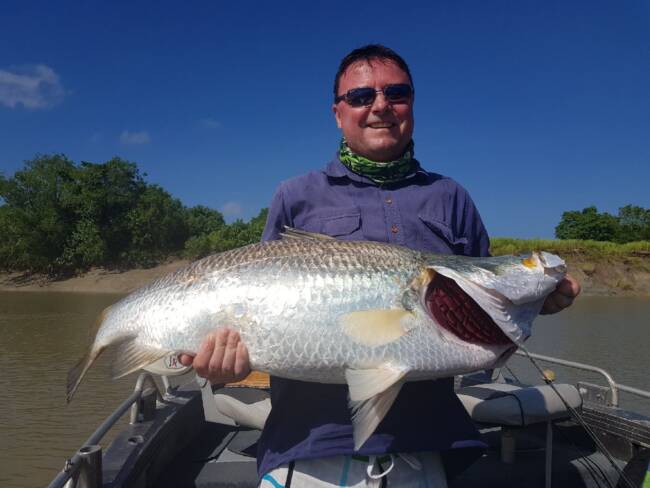Striking a fair balance between TOs' sea country rights and access for recreational fishers
Date: Feb 28, 2021
Publication Type: Media Releases
The Northern Land Council has introduced a simple and free registration process for recreational fishers to access areas of Aboriginal sea country.
From 1 March 2021 to 31 December 2022 recreational fishers will be able to access the Territory’s fishing spots across nearly 2,000km of Aboriginal sea country under a simple and free registration process.
These arrangements are in addition to Long Term Access agreements that have been in place since 2013 that allow for access to fishing areas along 1,100 kilometres of Aboriginal sea country.
This means that to the end of 2022 recreational fishers will have permit-free access to more than 3,000 kilometres of Aboriginal sea country in the NLC area by completing a simple and free registration process.
NLC CEO Marion Scrymgour said, “As I promised last year, NLC has been out consulting widely with traditional owners of sea country about what they want to do with their land and sea country. Aboriginal land and sea country is privately owned. Like any land owners, they have the right to say who can and who cannot come onto their country. There are some areas where, for cultural, environmental or commercial reasons, traditional owners want to restrict access.”
“The Northern Land Council has statutory responsibilities to assist Traditional Owners to manage their country and we take those responsibilities very seriously. The NLC has been talking to and sharing information with all the other stakeholders – the NT government, AFANT, the Seafood Council and the Guided Fishing Tour operators but at all times we have to put the interests of traditional owners first. And that’s what we do.
“Contrary to the report in the Sunday Territorian yesterday, recreational fishers in the NT will enjoy permit-free fishing across more than 3,000 kilometres of Aboriginal sea country. That report and the Sunday Territorian Editorial were wrong, speculative and unhelpful to both recreational fishers’ continuing access to the Top End’s wonderful fishing spots and to traditional owners of sea country who want to ensure that their country is managed properly for the future and for all Territorians to enjoy,” said Ms Scrymgour.
NLC Chairman, Samuel Bush-Blanasi noted the long history of the battle for sea country in the NT. “That struggle didn’t just start with Blue Mud Bay in the High Court, we had the Croker Island case before that and sea country traditional owners have been fighting for their country for many, many years.”
“We came close when the Land Rights Act was first introduced by the Whitlam government in 1975. Back then the Land Rights Act would have given us two miles of sea country out from the shore.
But when the Land Rights Act was re-introduced to the Australian parliament by the Fraser government the next year those sea country rights were gone. We’ve never stopped fighting for our sea country and we never will,” said Mr Bush-Blanasi.


